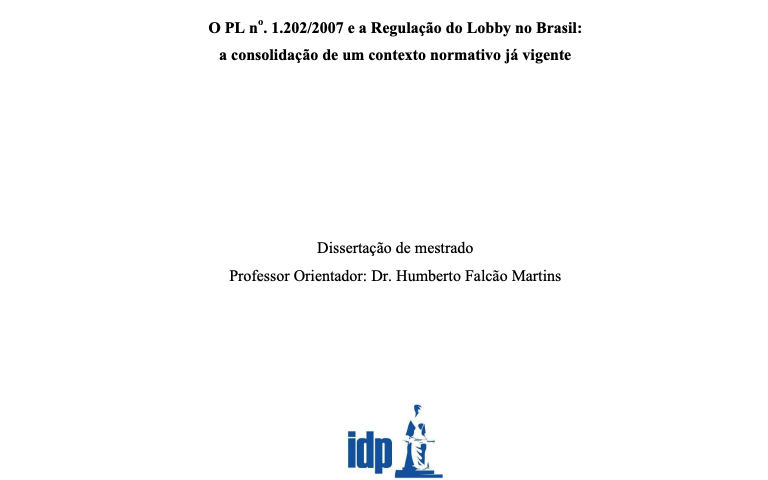The action of the association of state military officers of Paraná as a pressure group in the national congress
1 de January de 2020Leonel Brizola: Critical Analogy of Contemporary Politics
1 de April de 2020Bill No. 1,202/2007 and the Regulation of Lobbying in Brazil: Consolidating an Existing Regulatory Framework

The regulation of the lobby in Brazil is a subject that carries increasing prominence, especially, considering the controversies that relate the activity with corruptive practices and that generate a negative image for the practice, which, in spite of any argument, finds legal support in the Brazilian legal order. After several attempts to regulate it, there are now great chances that the PL 1,202/2007 might be approved (considering the substitutive text already amended). When examining the content of such project, bearing in mind the Principles foreseen by OECD and the north American experience, as well as the rules already enshrined in the Brazilian legal order, it is possible to conclude that the proposal is adjusted to the international scenario and, besides, it represents a consolidation of rules that are already valid in the country, thus, the only innovation is related to the definitions brought, which provide the development of such activity with a legal character and more legitimacy. Therefore, its approval should not represent such controversy, once it brings no great revolution to the current valid legal order. On the other hand, the approval of one specific rule for the activity would represent an important step forward, so it may have a better image and in order to guarantee more dignity to the professionals that develop it.
